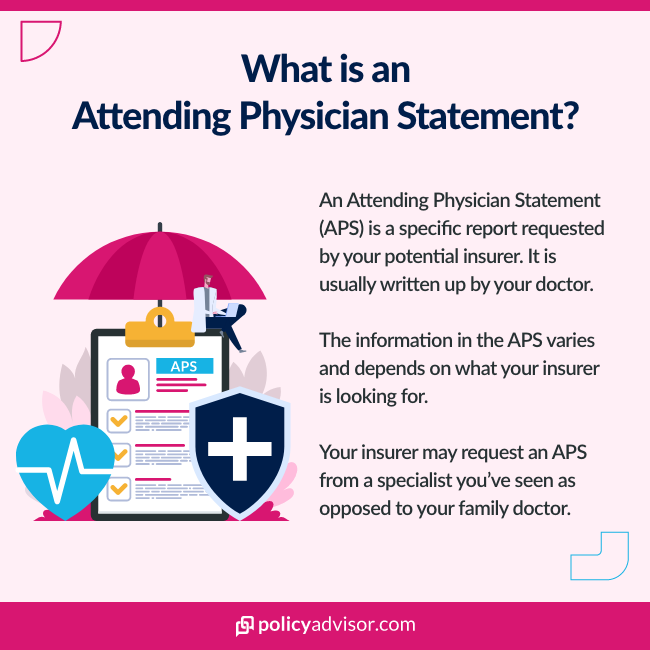Can You Get Life Insurance If You Take Psychedelics?
Curious about getting life insurance if you take psychedelics? Our video addresses this question by exploring how the use of psychedelics may impact your life insurance application. We discuss potential considerations, the impact on underwriting, and tips for navigating the application process. Learn how to approach this topic and ensure your coverage needs are met.

Psychedelics are substances that have historically sparked a range of reactions, from medical research interest to regulatory restrictions. With the growing curiosity surrounding their therapeutic benefits, many people wonder if taking psychedelics could affect their ability to obtain life insurance. The world of life insurance is shaped by numerous factors, and understanding how psychedelics fit into that picture is crucial if you're seeking coverage. In this guide, we'll explore how the use of psychedelics might influence your life insurance prospects and what options may be available to you.
Understanding Life Insurance and Risk Factors
When you apply for life insurance, insurers assess your overall health, lifestyle, and habits to determine the level of risk they are taking on by providing coverage. This process, known as underwriting, involves reviewing medical history, occupation, hobbies, and personal habits such as alcohol or drug use. The goal of the underwriting process is to gauge your life expectancy and determine how likely it is that the insurance company will have to pay out a claim during the policy term.
Life insurance companies typically categorize applicants into risk groups. Low-risk individuals generally receive more favorable premiums, while those who are deemed high-risk may face higher costs or even rejection. Substance use, including the use of psychedelics, can potentially raise red flags for insurers, which is why understanding how it might impact your application is key.
The Stigma Surrounding Psychedelics
For many years, psychedelics were viewed negatively, primarily due to legal restrictions and the association with countercultural movements. Substances like LSD, psilocybin (magic mushrooms), and ayahuasca were classified as illegal under most jurisdictions, making them subjects of public scrutiny and concern. Life insurance providers, like other industries, reflected this stigma in their policies by treating drug use as a serious risk factor.
However, recent scientific studies have started to change public perceptions. Psychedelics are now being researched for their potential therapeutic benefits in treating conditions such as depression, anxiety, PTSD, and addiction. This shifting landscape has led to a reevaluation of psychedelics, but it hasn’t completely altered the way life insurance companies view them.
How Life Insurance Companies View Psychedelic Use
Most life insurance companies still classify the use of illegal drugs as a high-risk behavior. Psychedelics, which remain illegal in many places despite growing interest in their medicinal potential, may be viewed with caution by insurers. If you disclose the use of psychedelics on your application, it may trigger additional scrutiny, and you could be asked to provide more information about your health and lifestyle.
Life insurance companies typically do not differentiate between types of drug use unless there are clear distinctions in the risk profiles. For instance, occasional recreational use of psychedelics may be treated differently than long-term or habitual use, but in both cases, insurers are likely to approach the application with caution.
Medical Psychedelic Use and Its Impact
While recreational use of psychedelics might raise concerns, the scenario changes somewhat when it comes to medical use. Psychedelics like psilocybin and MDMA are being explored in clinical settings for their potential benefits in mental health treatment. In some jurisdictions, clinical trials or treatments using psychedelics are gaining legal approval for specific cases.
If you are undergoing a medically supervised psychedelic treatment, insurers may look at this differently than recreational use. In these cases, the life insurance company may examine your overall medical condition and the specifics of the treatment you're receiving to determine whether it presents a significant risk.
For those who are part of legal, therapeutic psychedelic programs, it is possible to explain the medical context to insurers and provide documentation from healthcare providers. The transparency and context can potentially improve your chances of getting coverage, though the outcome will still depend on the insurer’s policies.
Honesty During the Application Process
One of the most critical aspects of applying for life insurance is honesty. Failing to disclose information about drug use, including psychedelics, can lead to serious consequences later on. If the insurance company discovers that you were not truthful on your application, they may deny a claim, cancel your policy, or increase your premiums.
It’s important to provide accurate information about any psychedelic use, whether recreational or medical. Being upfront allows the insurer to make an informed decision, and in some cases, it might not disqualify you from receiving coverage, especially if the drug use is infrequent or medically prescribed.
Options for Those Who Use Psychedelics
If you use psychedelics, either recreationally or for medical purposes, and are concerned about obtaining life insurance, there are a few potential strategies you can explore. One option is to seek out insurers that specialize in working with applicants who have complex health or lifestyle factors. Some insurance providers have more flexible underwriting processes and may be more open to considering applicants with psychedelic use in their history.
Another approach is to apply for life insurance during periods when you are not using psychedelics. If you’ve only used psychedelics occasionally or have ceased using them, you can explain this on your application and potentially receive more favorable treatment. Insurers often consider applicants’ recent health and behavior, and if you’ve been free of drug use for a certain period, it might improve your chances of approval.
Additionally, it may be helpful to explore term life insurance policies, which typically offer coverage for a set period. Term policies can be easier to qualify for than permanent life insurance, and they may offer more affordable premiums. In some cases, applying for a smaller amount of coverage initially could also be a way to secure life insurance even if your psychedelic use is a factor.
Seeking Professional Guidance
Navigating the world of life insurance while taking psychedelics can be complex, and the landscape is continually evolving. One of the best steps you can take is to consult with a life insurance broker or agent who has experience with clients in similar situations. A knowledgeable professional can help you understand which insurers are more likely to consider your application and guide you through the process.
An agent can also help you compare policies and premiums to find the best option that meets your needs and fits your budget. They may even be able to recommend insurers that are more flexible in their underwriting and willing to work with clients who have a history of psychedelic use.
The Future of Psychedelics and Life Insurance
As the medical and therapeutic use of psychedelics continues to gain attention, it's possible that life insurance policies will eventually adapt to reflect these changes. If psychedelics become more widely accepted as legitimate treatments for mental health conditions, life insurance companies may begin to adjust their underwriting practices to accommodate those who use them under medical supervision.
For now, however, life insurance applicants who take psychedelics may still face challenges in securing coverage. Being proactive, honest, and seeking professional assistance can help increase your chances of finding the right policy for your situation.
Obtaining life insurance while using psychedelics can present unique challenges, but it’s not necessarily impossible. Insurers assess risk based on various factors, and while psychedelic use may raise concerns, it doesn’t automatically disqualify you from coverage. By being transparent during the application process, seeking out flexible insurers, and exploring different policy options, you can improve your chances of securing life insurance.
As the conversation around psychedelics continues to evolve, so too may the world of life insurance. Whether you use psychedelics recreationally or medically, it’s important to stay informed and work with professionals who can guide you toward the best coverage solutions.
FAQs
Can I get life insurance if I use psychedelics recreationally?
Yes, but it may depend on the frequency and nature of your use. Some insurers may view it as a higher risk, while others may be more lenient, especially if the use is infrequent.
Will medical use of psychedelics affect my life insurance application?
Medical use of psychedelics, especially if supervised by a healthcare professional, may be viewed differently from recreational use. Providing context and documentation can help insurers better assess the situation.
What happens if I don’t disclose my psychedelic use on a life insurance application?
Failing to disclose drug use can lead to policy cancellation, claim denial, or increased premiums. It’s important to be honest and upfront about your history during the application process.
Can I still get life insurance if I’ve stopped using psychedelics?
If you’ve stopped using psychedelics, this may improve your chances of getting approved for life insurance, particularly if you’ve been drug-free for a certain period.
Are there insurers that specialize in working with people who use psychedelics?
Some insurers have more flexible underwriting policies and may be willing to work with applicants who have a history of psychedelic use. Consulting with a broker can help you find the right insurer.
What's Your Reaction?


















